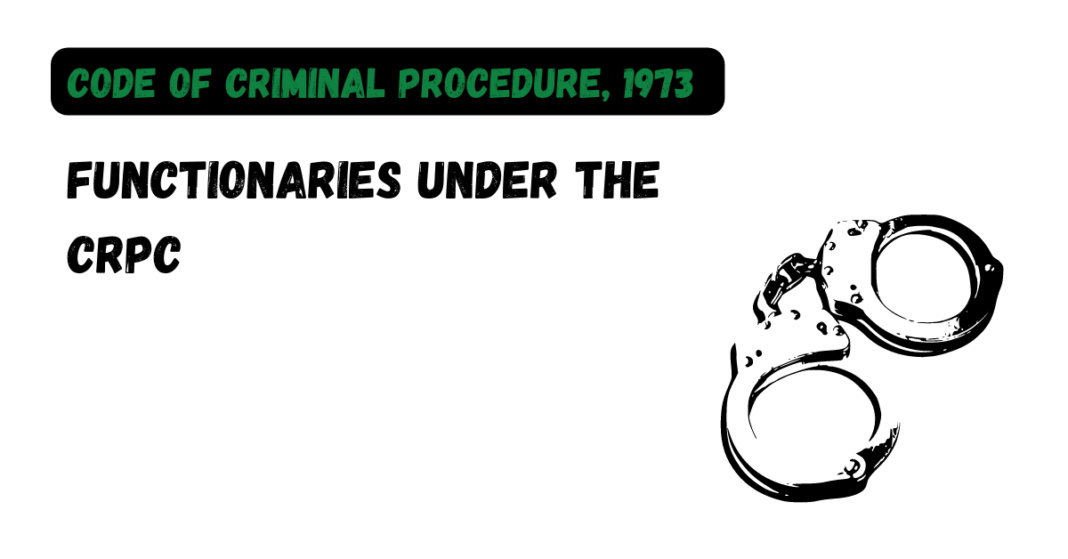The Code of Criminal Procedure (CrPC) provides for the roles and responsibilities of several functionaries in the criminal justice system.
Main functionaries under the CrPC
- Police: The police are responsible for investigating criminal cases, collecting evidence, and arresting accused persons. They also have the power to file chargesheets and submit reports to the courts.
- Magistrates: Magistrates are judicial officers who are responsible for conducting the trial of criminal cases. They have the power to issue arrest warrants, search warrants, and remand orders. They also have the power to grant bail, and to pronounce judgments and sentences.
- Public prosecutors: Public prosecutors are legal officers who represent the state in criminal cases. They are responsible for presenting the case before the court and proving the guilt of the accused beyond reasonable doubt.
- Judges: Judges preside over the trial of criminal cases and are responsible for pronouncing judgments and sentences. They also have the power to issue orders and directions to ensure the smooth conduct of the trial.
- Witnesses: Witnesses are persons who provide testimony in criminal cases. They are required to appear before the court when summoned, and to provide truthful and accurate information.
- Accused persons: Accused persons are persons who are charged with committing a criminal offence. They are entitled to a fair trial and to the presumption of innocence until proven guilty.
- Victims: Victims are persons who have suffered harm or loss as a result of a criminal offence. They have the right to participate in the trial and to seek compensation for their losses.





